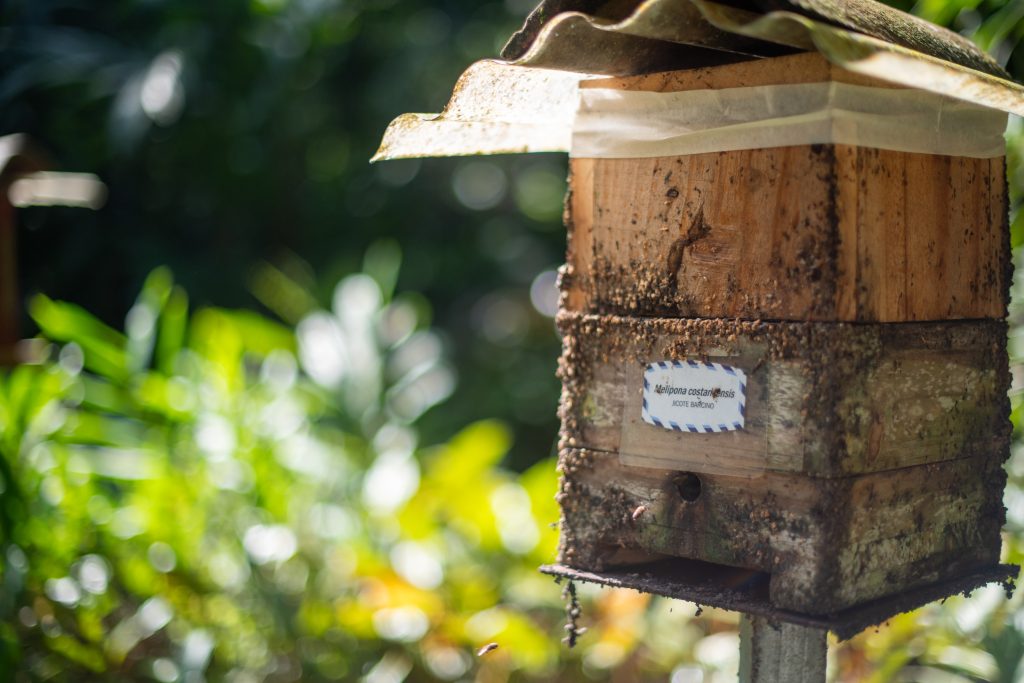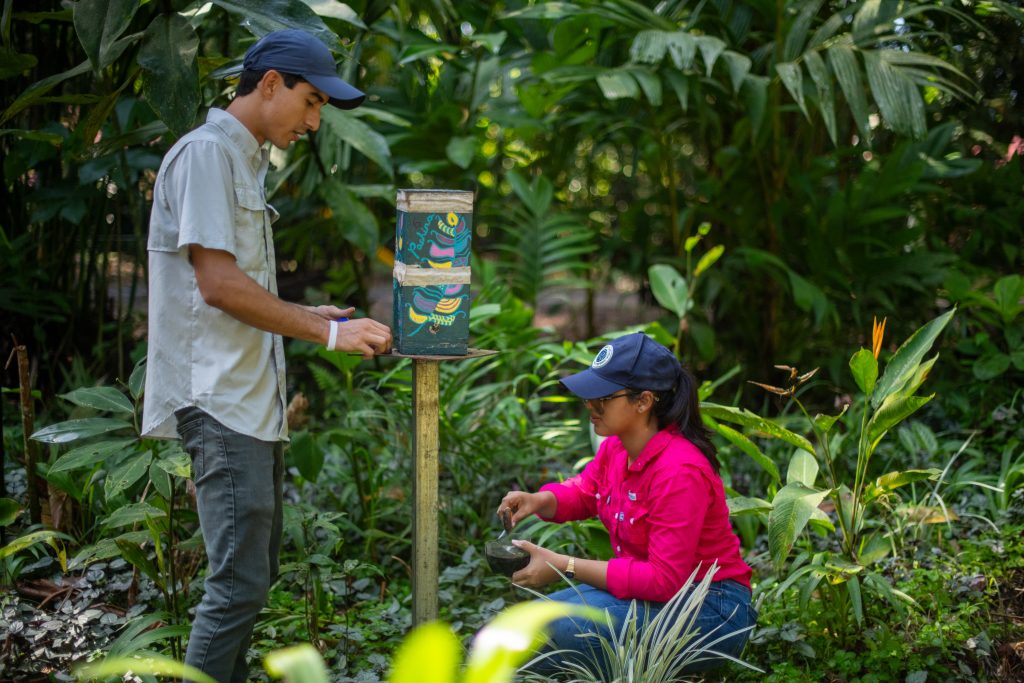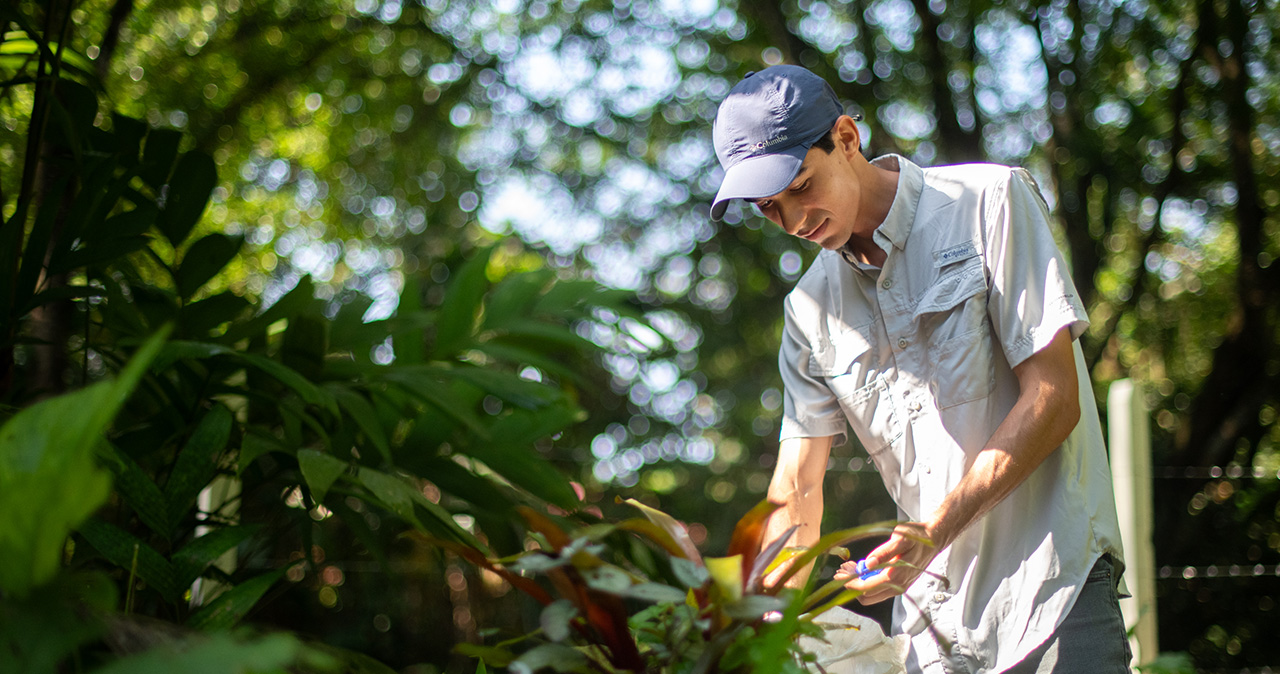Sergio González (Class of 2024, Costa Rica) hops on his bike and rides to the Botanical Garden, where he leads one of the 19 settings of EARTH’s Work Experience Course. There, he prepares the day’s tasks to care for the bees that inhabit the Garden and the Educational Apiary.
Every Wednesday and Saturday morning, students at our University’s Guácimo Campus are divided among the various academic farms to participate in the Work Experience Course, where they apply the knowledge acquired in class in real-life contexts.
Ever since he first learned about beekeeping during an internship in his sophomore year, Sergio has been passionate about knowing more about this insect that, although so small, is essential to ecosystems. Bees are pollinators, and their function is fundamental to the reproduction of various plants, including many that are part of our diet. Without bees, producing fruits, vegetables, and other crops would be severely impacted, directly affecting global food security.
“My vocation for bees was born from the realization that it is a huge world that has not been sufficiently explored. The more information I get about bees, the more I want to learn about them,” Sergio says.

At the Botanical Garden and the Apiary, Sergio and the faculty receive rotating groups of first and second-year students and talk about the stingless bees that inhabit both areas. This type of bee, also known as Melipona or native bees, is more docile and less aggressive than traditional honeybees. Sergio explains the bees’ importance as pollinators to the student groups, tells them about their diet, and shows them how a hive works inside. He and the students also discuss the diseases that plague bees and possible solutions to protect them.

Sergio shares four tips that everyone can use to protect these fascinating and necessary creatures:
- Respect their habitat and the climate where a hive is located: “Stingless bees become disoriented when they move, so if they have to move, it is a process that takes months of adaptation, not only because of the climate but also because we are changing their diet. If they are used to feeding on forest species and they move to an urban area, they will be very affected.”
- Use biological microorganisms instead of chemical fertilizers: “Bees manage certain beneficial microorganisms in their bodies, mainly in the intestines, that help them maintain hygienic behavior and protect them from other pathogenic microorganisms.”
- Do integrated control of pests that affect bees’ welfare, such as certain types of mites: “For my Graduation Project, I am investigating alternative methods of controlling Varroosis to avoid using chemicals and monitoring Nosemosis infection levels, which are major diseases in western honeybees.”
- And most importantly, education and awareness about the importance of bees to the balance of life on Earth.
Thank you, Sergio, for sharing your passion with the EARTH community and for being a guardian of the bees!
